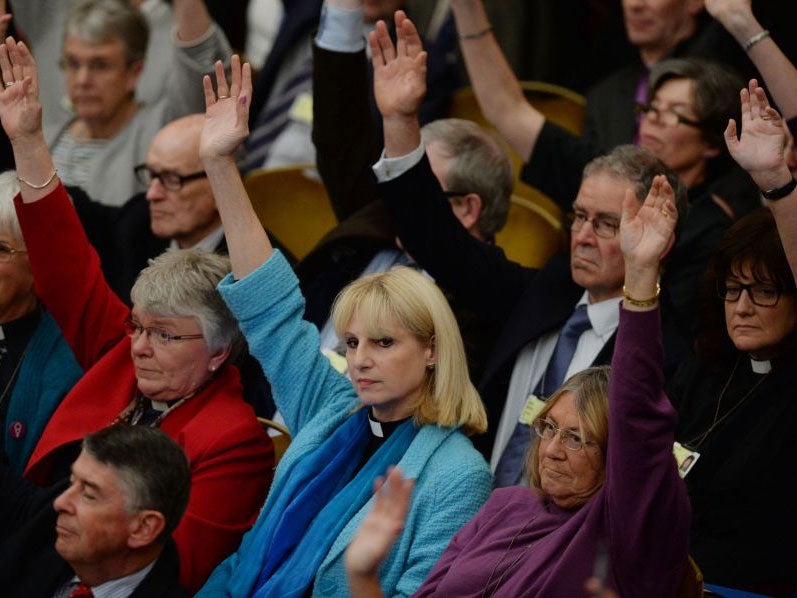Rev Emma Percy interview: Why I refer to God as a 'she'
The feminine pronouns are not intended to replace the male ones, but to broaden people’s experiences' of God, she says

Your support helps us to tell the story
From reproductive rights to climate change to Big Tech, The Independent is on the ground when the story is developing. Whether it's investigating the financials of Elon Musk's pro-Trump PAC or producing our latest documentary, 'The A Word', which shines a light on the American women fighting for reproductive rights, we know how important it is to parse out the facts from the messaging.
At such a critical moment in US history, we need reporters on the ground. Your donation allows us to keep sending journalists to speak to both sides of the story.
The Independent is trusted by Americans across the entire political spectrum. And unlike many other quality news outlets, we choose not to lock Americans out of our reporting and analysis with paywalls. We believe quality journalism should be available to everyone, paid for by those who can afford it.
Your support makes all the difference.As a member of Women and the Church (Watch), the pressure group that pressed for the ordination of female bishops, the Rev Emma Percy is a proud feminist.
But the Chaplain of Trinity College Oxford raised eyebrows earlier this year when she announced that she wanted to combat sexism in the Church of England by referring to God as “She”.
By using exclusively male language to describe God, the Church is reinforcing the idea that God is like a man, the implication being that women are less holy, Dr Percy argued. “Some people said it’s making an unnecessary fuss, but there is the sense still in the Church that women are there under an agreement that says it’s perfectly reasonable for people to think we should not be,” she told i, adding that “some people probably think I should shut up”.
She’s not being paranoid; Dr Percy has been the recipient of piles of letters, the sentiments of which are decidedly un-Christian.
“Some said I was stupid… some were a little more offensive. I was interested that it stirred people up so much. The really good thing was that it got conversations going.”
Dr Percy encourages churchgoers to write prayers and liturgies using female pronouns and imagery when reflecting on “our Mother God”.
The feminine pronouns are not intended to replace the male ones, but to “broaden people’s experiences” of God, she said.
Dr Percy and Watch are hopeful they will be able to prove to those who write the Church’s liturgies that this is not just an issue for “a small, peculiar group”, but for “many more people in the wider community”.
“I have a very strong faith that has sustained me through a lot of ups and downs. I would like people to be able to find that same faith and excitement in God. That means we have to give people… the ability to make a connection between God and their own lives. For a lot of women that means they need to be able to have a sense God understands and values who they are,” Dr Percy said.
“There are ongoing conversations to make sure the Liturgical Commission are aware this is still an issue. How far up the agenda that is, I’m not sure, but we will keep saying this matters.”
Join our commenting forum
Join thought-provoking conversations, follow other Independent readers and see their replies
Comments